Introducing guests and hosts
Turo’s booking process has many similarities to other marketplaces in the sharing economy. One example includes asking guests to write a message to their host when booking a car.
If you’ve ever booked on a marketplace (car, home, or service) and were prompted to write a message before checking out, you’ve likely asked yourself: “What should I say?”

Guest conversion team
I was the product designer on this initiative alongside a PM, five engineers, and a data scientist. We shipped our solution available on the web, Android, and iOS in 6 weeks.
As a part of the conversion team, we were responsible for helping guests book a trip as quickly and painlessly as possible. We had 3 basic tenets:
- Reduce friction
- Increase motivation
- Decrease stress
Identifying issues at checkout
A small number of guests complete the booking funnel
Through our research, we learned that only 20% of guests convert at the checkout page.
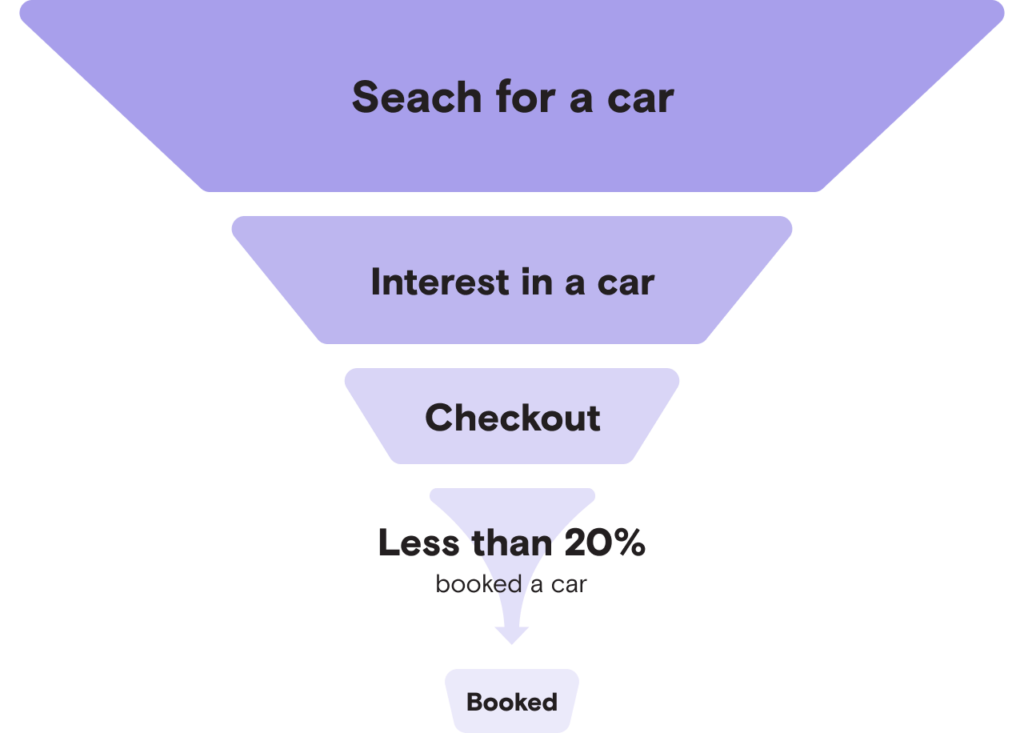
Checkout has a lot of friction
Guests have a lot to consider when selecting a car for their trip (price, car type, location, etc). Once they find the perfect car, they’ll start the checkout process:
A project with high impact and low effort
After careful consideration, we decided to focus on reducing friction in the message to the host. Our team felt strongly that this initiative could result in high business impact with the lower effort of our resources.
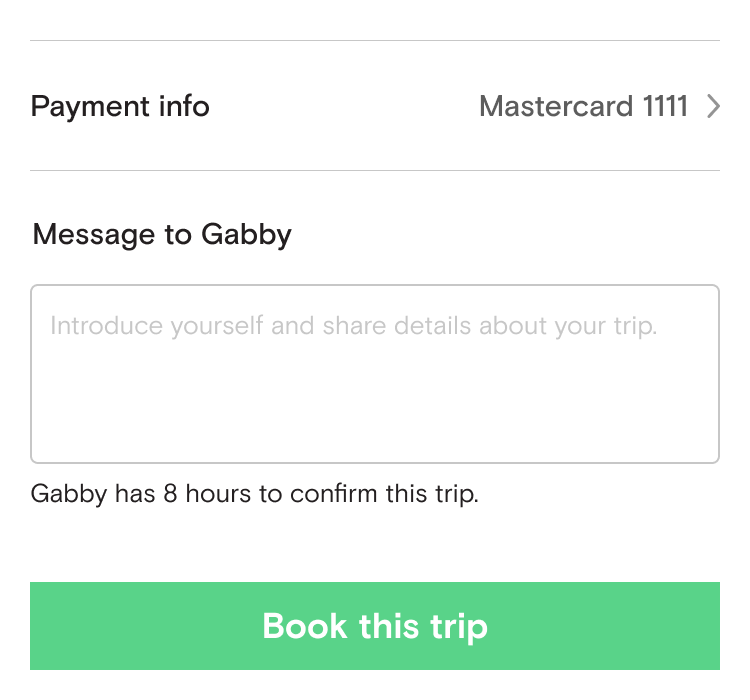
Coming up with different concepts
Providing instructions to a required message
The first concept is still required for a guest. Instructions and suggestions will be provided to make it easier when guests write the first message to the host.
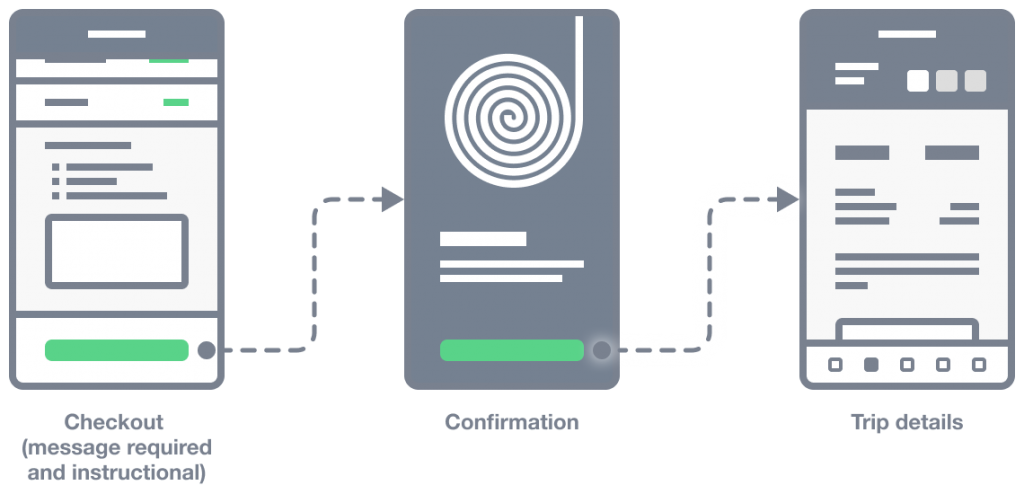
Making messages optional
This concept focuses around letting the guest either write a message before or after checking out.
If they know what they want to say before, then they can write a message at checkout. If not, guests will be led to the messages to start a conversation with hosts.
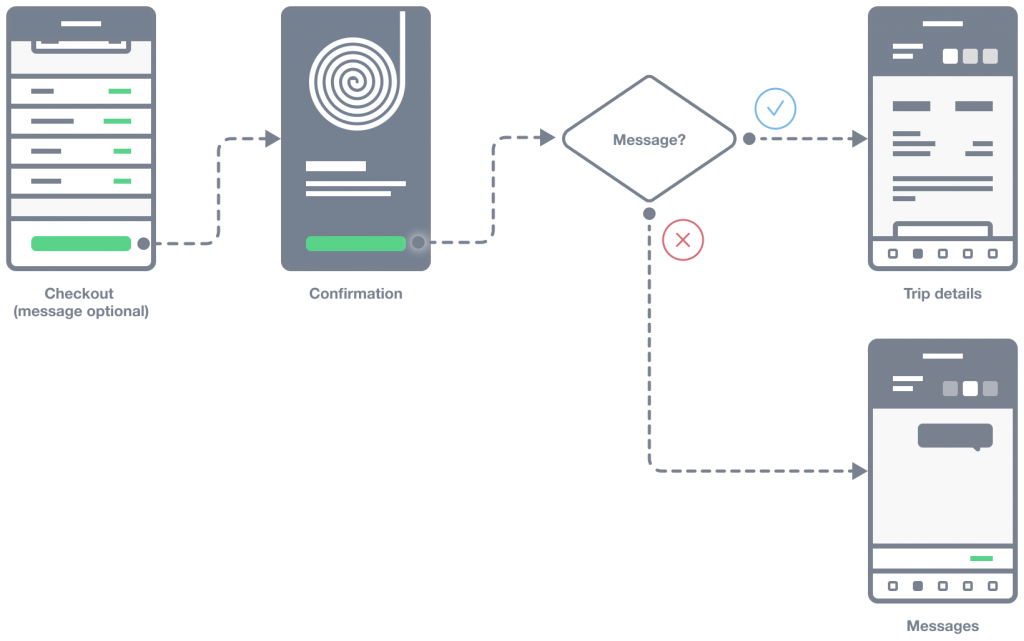
Removing message from checkout
The last concept completely removes the message from checkout. The guest lands on messages after the confirmation screen.
The guest and host are provided suggestions to start the conversation.
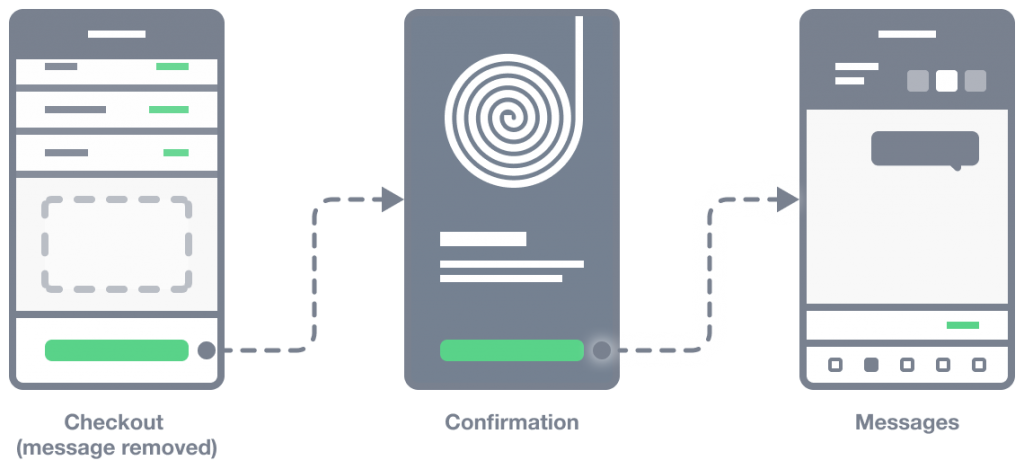
We ultimately chose the last concept because:
- Reduces the overall number of steps at checkout
- More simple design and logic
- We’ll learn more through an A/B test
Additional key features
It only applies to instant bookings
The booking process has a pending request and instant book feature. hosts who can be less confident about screening guests will use the Pending requests feature.
Knowing this, I wanted to preserve the functionality for pending requests. Hosts who use instant book are more business-minded and generally, more flexible with their bookings.
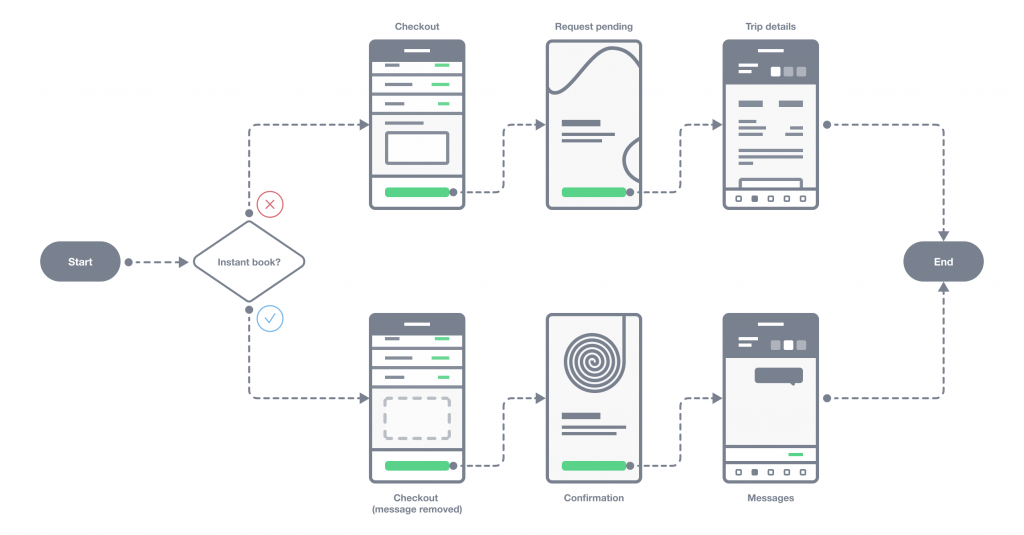
Provide value for hosts
I was concerned about a few features that were released earlier in the year that benefitted guests but made it more difficult for hosts. I proposed to make it easier for hosts to find information about guest details.
So we switched gears and asked ourselves – how could we make it easier for guests to book a car AND help hosts with the information they need to feel comfortable renting their car to the guest?
Improving navigation as extra credit
Lastly, I was worried guests might get confused when they land in a different place after booking – instead of Trip Details.
I recalled a previous study, which highlighted the difficulty guests had with navigation. I proposed a change with my team and we agreed to improve the usability of the navigation – to ensure guests can easily way find a booked trip.
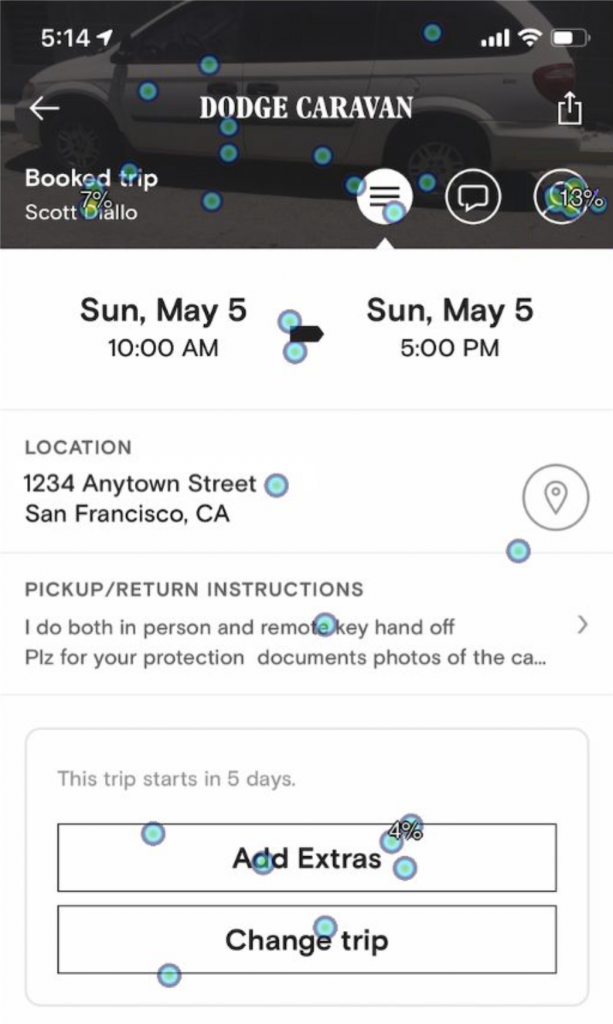
Bridging communication between
guests and hosts
Guest booking process
The first change we made to checkout was removing the Message to host section. We replaced it with the message that explains they can message a host after checkout, which can alleviate any concerns about contacting the host.
The guest is provided clear context that they can message the host after the confirmation screen. Once a guest lands on the message screen, they will be greeted with a message guiding them with instructions to message the host.
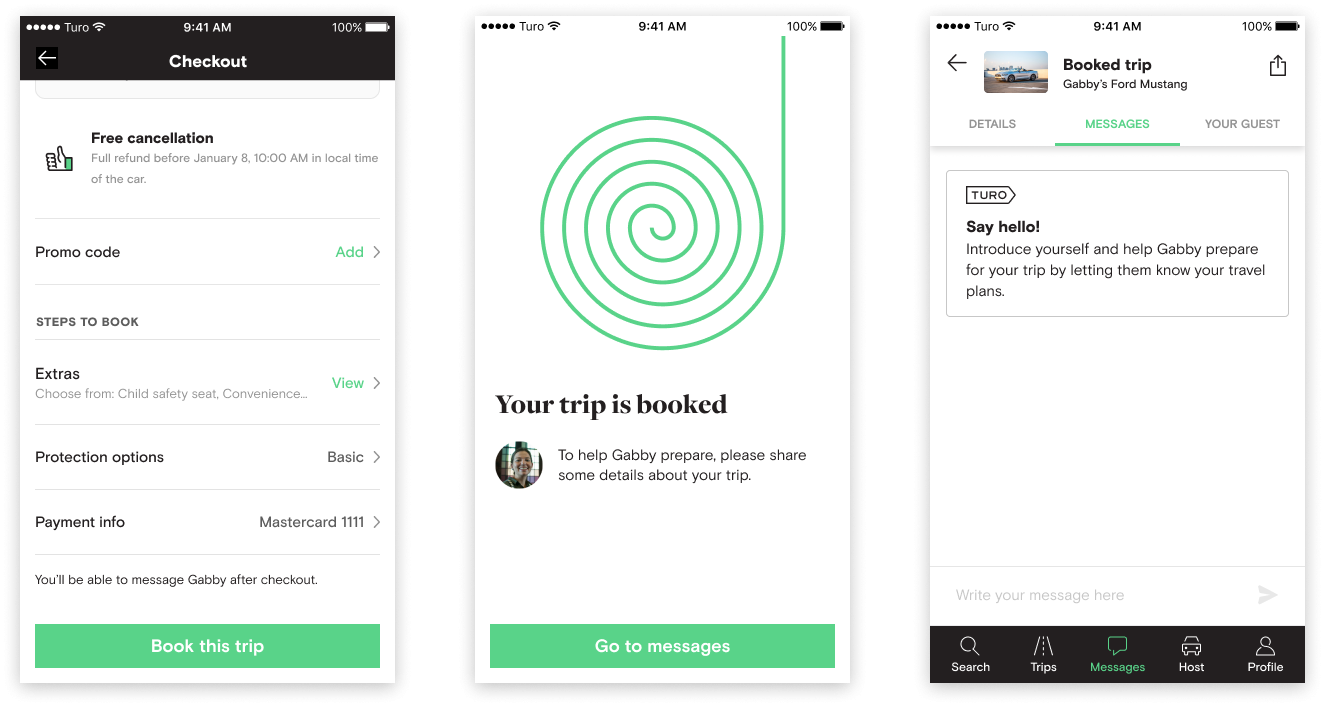
Ensuring clear navigation and content
I pushed for clear labeling over icons in our navigation. I separated the information hierarchy by grouping trip information from the navigation and avoiding an image as a background for better readability.
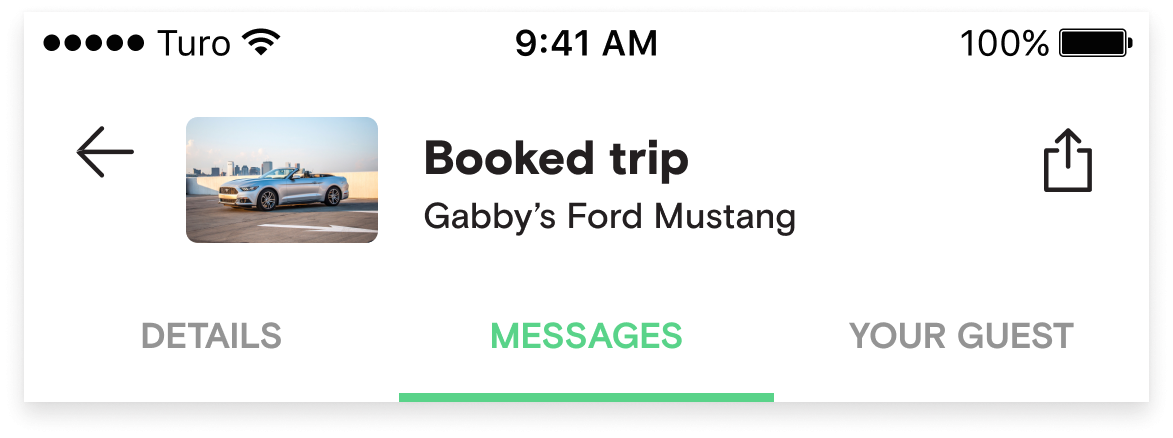
Give hosts more confidence
I provided upfront information about the guest to help the host understand who is booking their car.
An empty state message was also provided to help guide hosts on what to write. This Turo message will disappear once a message is sent from either party.
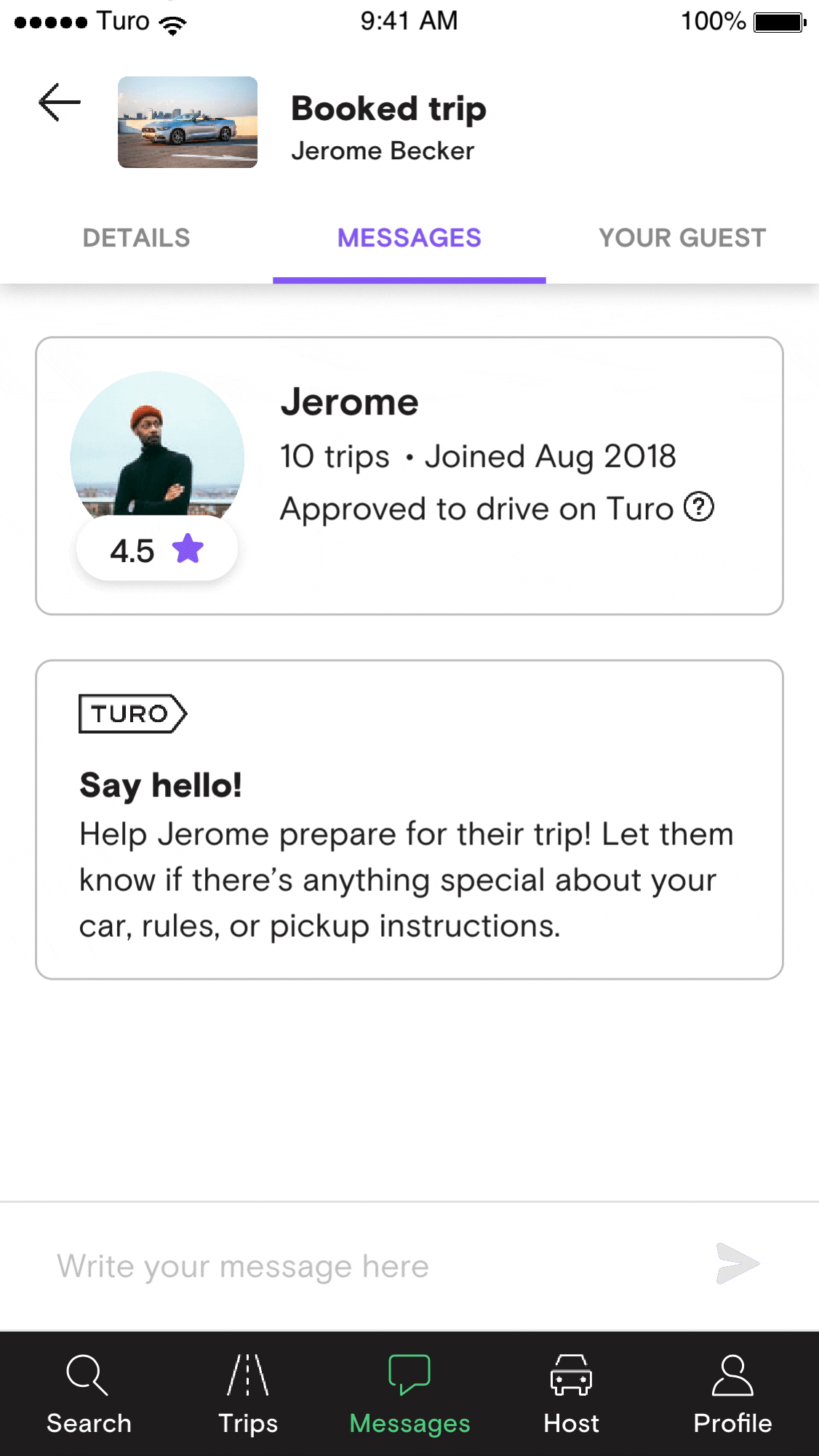
Impacting our metrics
1.8%
increase in conversion
1.9%
fewer trip cancelations
Additionally, we saw hosts had a slight increase in their engagement with guests. Some of our secondary metrics resulted in:
- ~95.2% of trips had conversations started between guests and hosts
- ~73% of messages have guests starting the conversation
It was exciting to see my work having a positive impact on the business, from both sides of conversion and net cancelation.